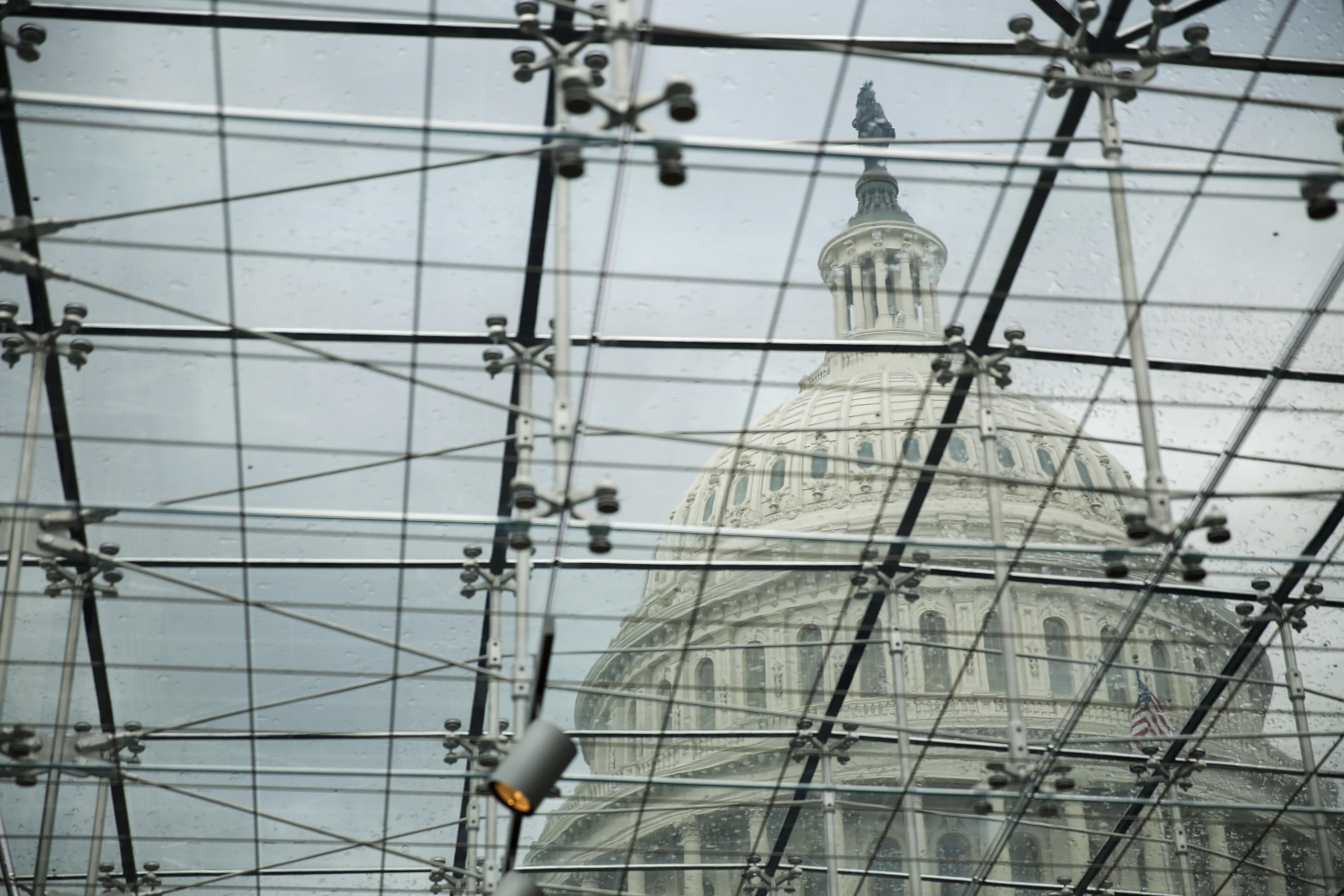The National Journal is out with its annual Congressional Vote Rating report, which looks to place every lawmaker on a political spectrum based on how they voted during the previous year. The most obvious takeaway—that Congress remains overwhelmingly partisan—is far from a surprise, but the report nonetheless provides a handy snapshot of where individual lawmakers stand on the spectrum in relation to one another.
So, without any more throat clearing on my part, who were the “most moderate” (a relative term, clearly) members of Congress last year? According to the National Journal, that honor goes to a trio of Democrats in the Senate—West Virgina’s Joe Manchin, Nebraska’s since-retired Ben Nelson, and Arkansas’s Mark Pryor—and a trio of Republicans in the House—Pennsylvania’s Charlie Dent, New York’s Michael Grimm, and New Jersey’s Chris Smith. In the Senate’s case, those Democrats were also the most conservative members of their own party. But in the House, where the GOP enjoys a stronger majority than Democrats do in the upper chamber, the trio of Northeast Republicans were actually out-liberaled by an even ten of their fellow Republicans.
The unofficial title of Most Liberal Republican went to New York’s Chris Gibson, who turned in a more liberal voting record than ten Democrats. The most conservative Democrat, meanwhile, was Oklahoma’s since-retired Dan Boren, followed closely by Georgia’s John Barrow. Across the Capitol, Manchin was the most conservative Democrat in the Senate, while the since-departed Scott Brown of Massachusetts turned in the most liberal voting record among his GOP colleagues.
As NJ editors freely admit, their rankings aren’t perfect: a vote against a budget-cutting bill, for example, was counted as liberal, even if the man doing the voting was a Tea Party-aligned Republican who opposed the measure because he didn’t think the bill slashed enough spending from the budget. Still, unlike a number of similar congressional scorecards handed out by various industry groups, the NJ stakes no claim to telling the lawmakers how they should have voted, making it a somewhat rare independent snapshot in a photo album largely full of pictures taken by trade groups and lobbyists. It’s also likely to provide plenty of fodder for attack ads in the upcoming primary season as lawmakers face challenges from candidates running to their right or left, depending on the party in question.
The National Journal has all the full rankings, and a whole lot more analysis here.
***Follow @JoshVoorhees and the rest of the @slatest team on Twitter.***
